Bibby Stockholm: Migrants call for Home Office 'support and unity'
- Published
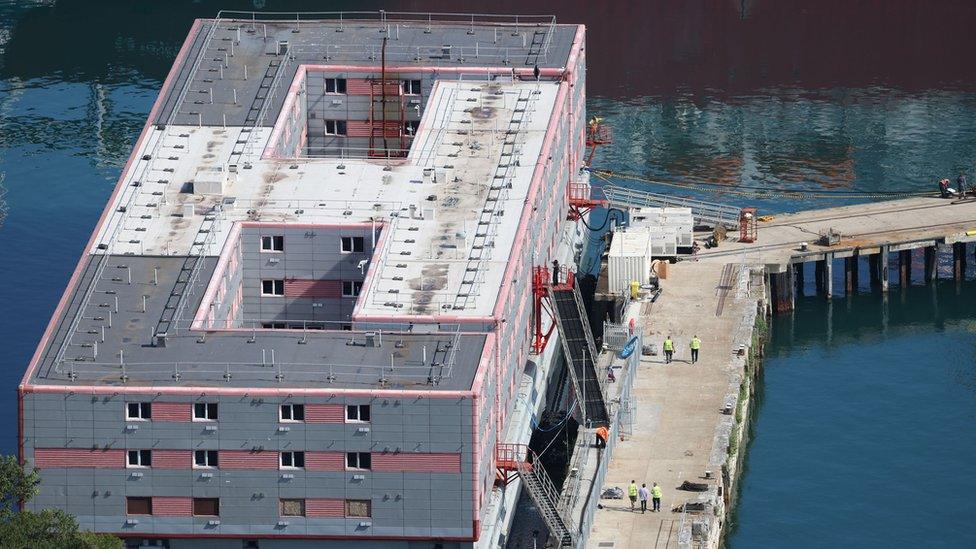
The barge is part of the government's plan to cut the cost of housing asylum seekers
Asylum seekers housed briefly on a migrant barge have asked the government for its "support and unity" in a bid to achieve a "peaceful and secure life".
The 39 men were taken off the Bibby Stockholm, berthed in Portland Port, Dorset, when traces of Legionella bacteria were found.
In an open letter, external, some express "shock and fear" over the find, and "isolation and loneliness" since being moved off.
The Home Office said it was following all health protocol and advice.
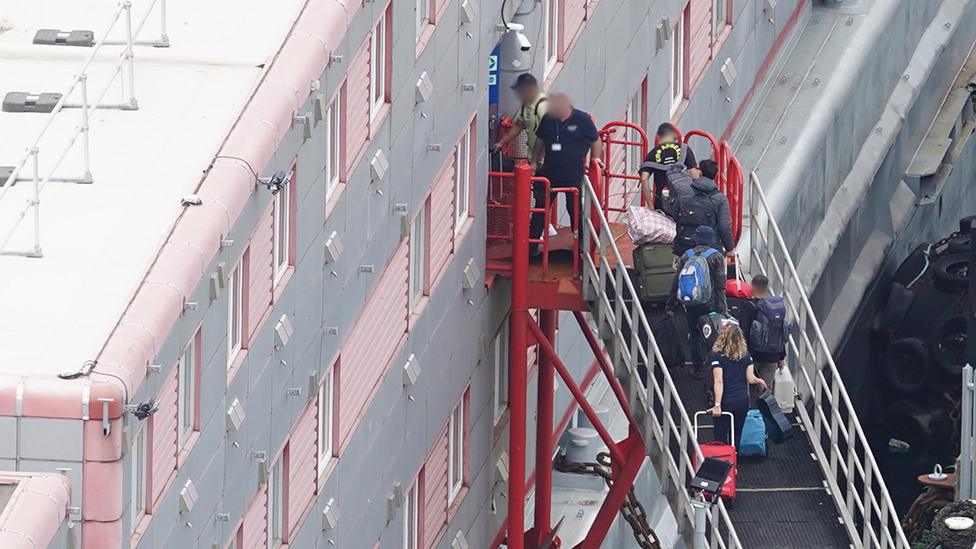
The vessel has so far housed 39 migrants
The BBC understands the letter was written by an individual on behalf of some of the 39 migrants, in collaboration with migrant support group Portland Global Friendship Group.
The men have been moved to a hotel in another county, and in the letter it is described as "old and abandoned".
Asking for support and guidance from the government, the group said: "We are individuals who are tired of the challenges that have arisen and no longer have the strength to face them."
The letter added the migrants were "striving for a freedom that is deteriorating in these exhausting conditions".
It continued: "We even lack the desire to live and perform any tasks.
"The absence of tranquillity, comfort and basic needs has become our daily concerns."
The letter also claimed, while the migrants were onboard the Bibby Stockholm: "In a tragic incident, one of the asylum seekers attempted suicide, but we acted promptly and prevented this unfortunate event."
If you have been affected by issues in this article there is help and support at BBC Actionline.
In a statement, a Home Office spokesperson said it was "conducting further tests" on the vessel's water system, with migrants expected to "re-embark only when there is confirmation that the water system meets relevant safety standards".
"The safety of those onboard remains the priority," they added.
Heather Joans, from the Portland Global Friendship Group which has helped with the letter, said it expressed "what a challenging experience it has been for them".
She said a nurse from the barge was now living in the hotel with the men "so they are getting a little bit more support on the healthcare side".
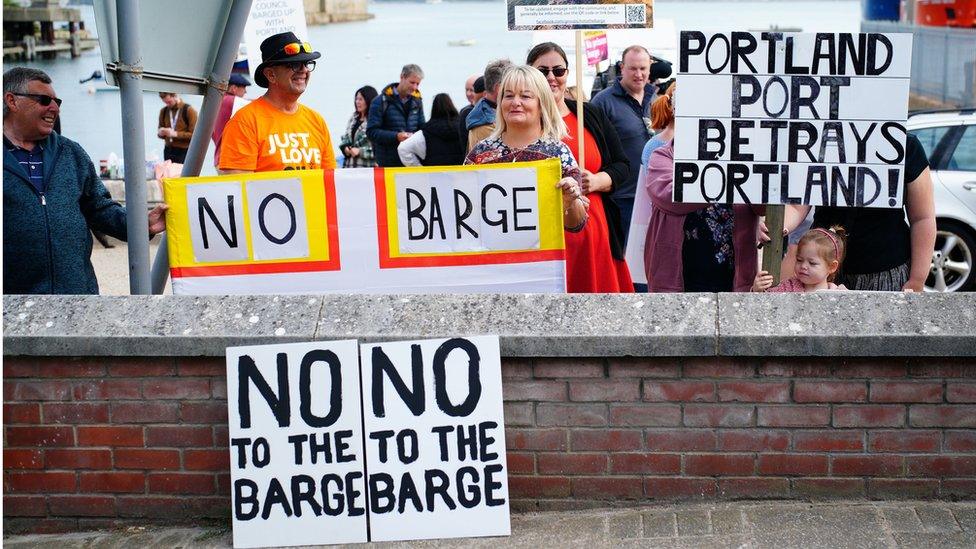
There has been considerable local opposition to the barge coming to Portland
The Home Office said: "We are following all protocol and advice from Dorset Council's Environmental Health team, UK Health Security Agency and Dorset NHS, who we continue to work closely with."
Ending the letter, the group said: "With your support and unity... We believe that with our joint effort, we can overcome these unfavourable conditions and achieve the peaceful and secure life that we aspire to."
The barge is part of the government's plan to cut the cost of housing asylum seekers and deter dangerous Channel crossings by migrants.
It previously said there were currently about 51,000 asylum seekers in hotels across the UK - having gone up by 3,000 since the end of March, costing the taxpayer about £6m a day.
Ministers intend to house about 500 men on the vessel while they await the outcome of asylum applications.
The 222-room, three-storey barge, chartered by the government for 18 months, arrived at the port in July.
Watch: Inside the housing barge after first asylum seekers board
The barge was previously used to accommodate homeless people and asylum seekers in Germany and the Netherlands.
The Home Office previously said "using vessels as alternative accommodation, like our European neighbours are already doing, will be better value for British taxpayers and more manageable for communities than costly hotels".
However, human rights group Amnesty International compared the Bibby Stockholm to "prison hulks from the Victorian era", saying it was an "utterly shameful way to house people who've fled terror, conflict and persecution".
The BBC has not been able to verify any of the claims in the letter.
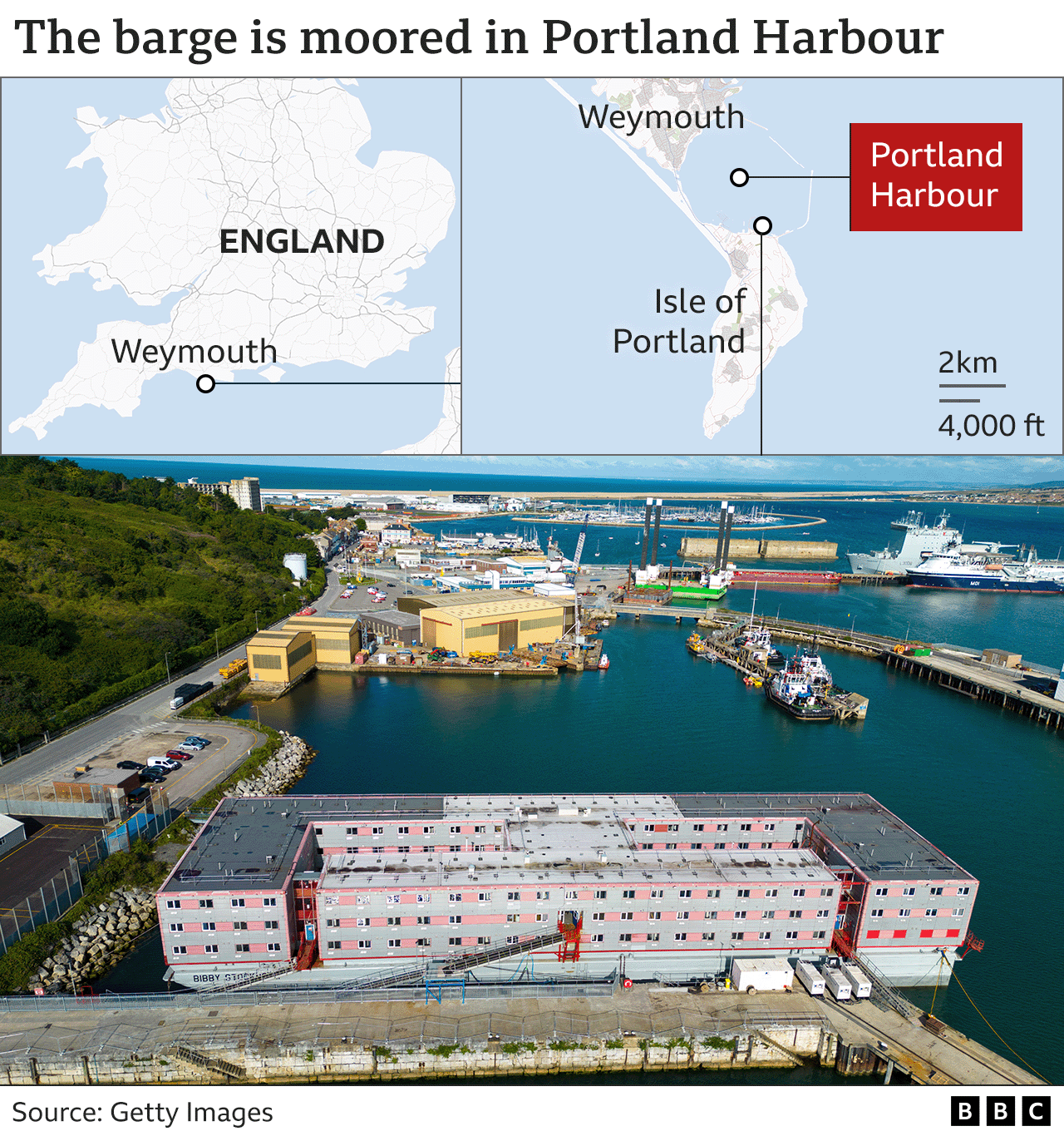

Follow BBC South on Facebook, external, Twitter, external, or Instagram, external. Send your story ideas to south.newsonline@bbc.co.uk, external.
Related topics
- Published23 August 2023
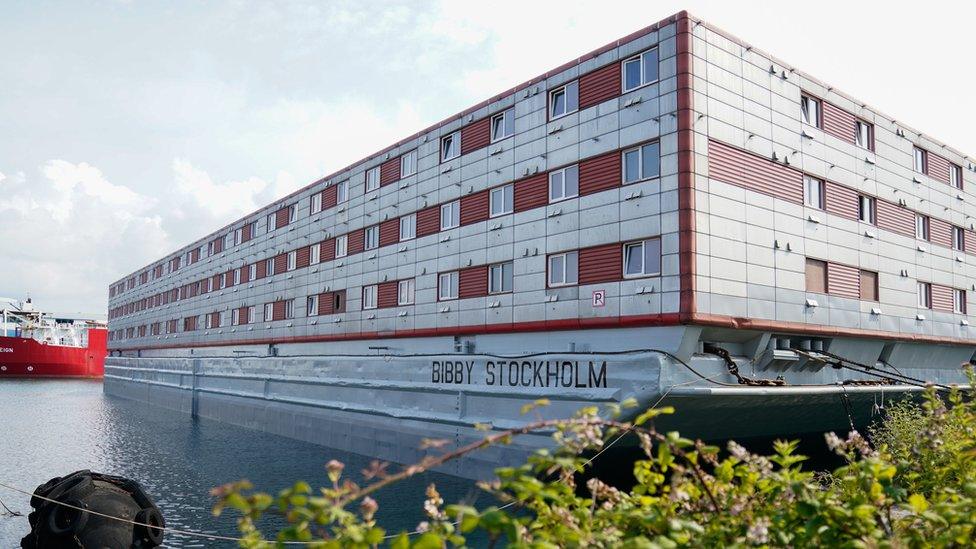
- Published9 August 2023

- Published8 August 2023
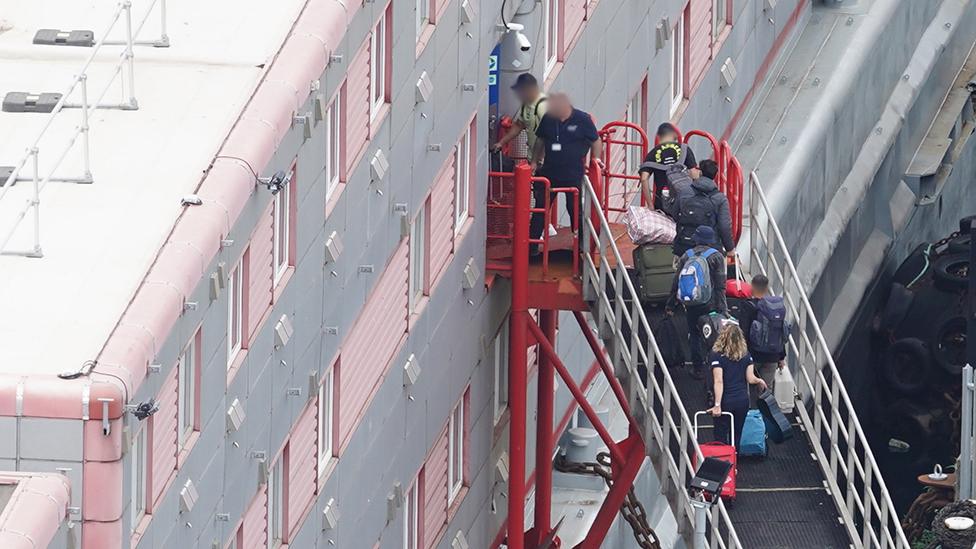
- Published17 July 2023
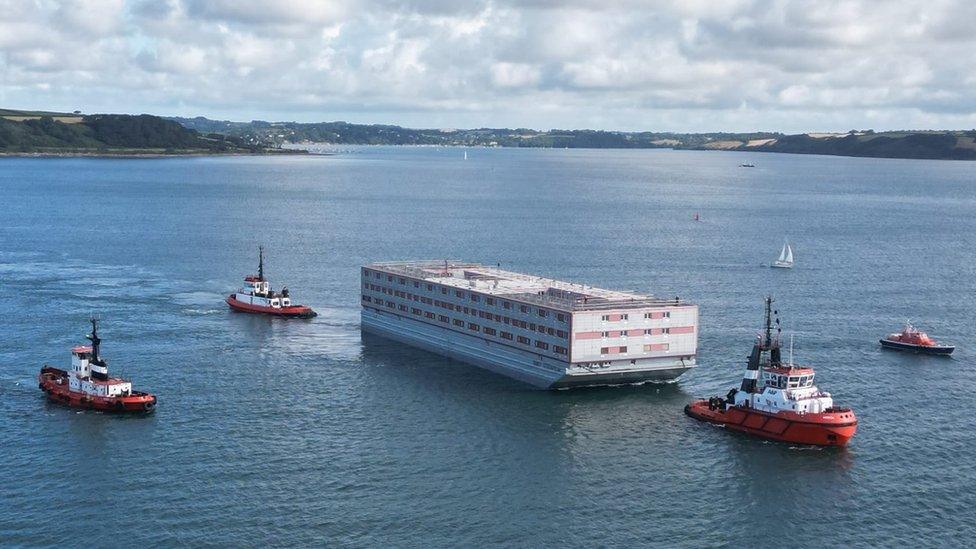
- Published4 June 2023

- Published24 May 2023
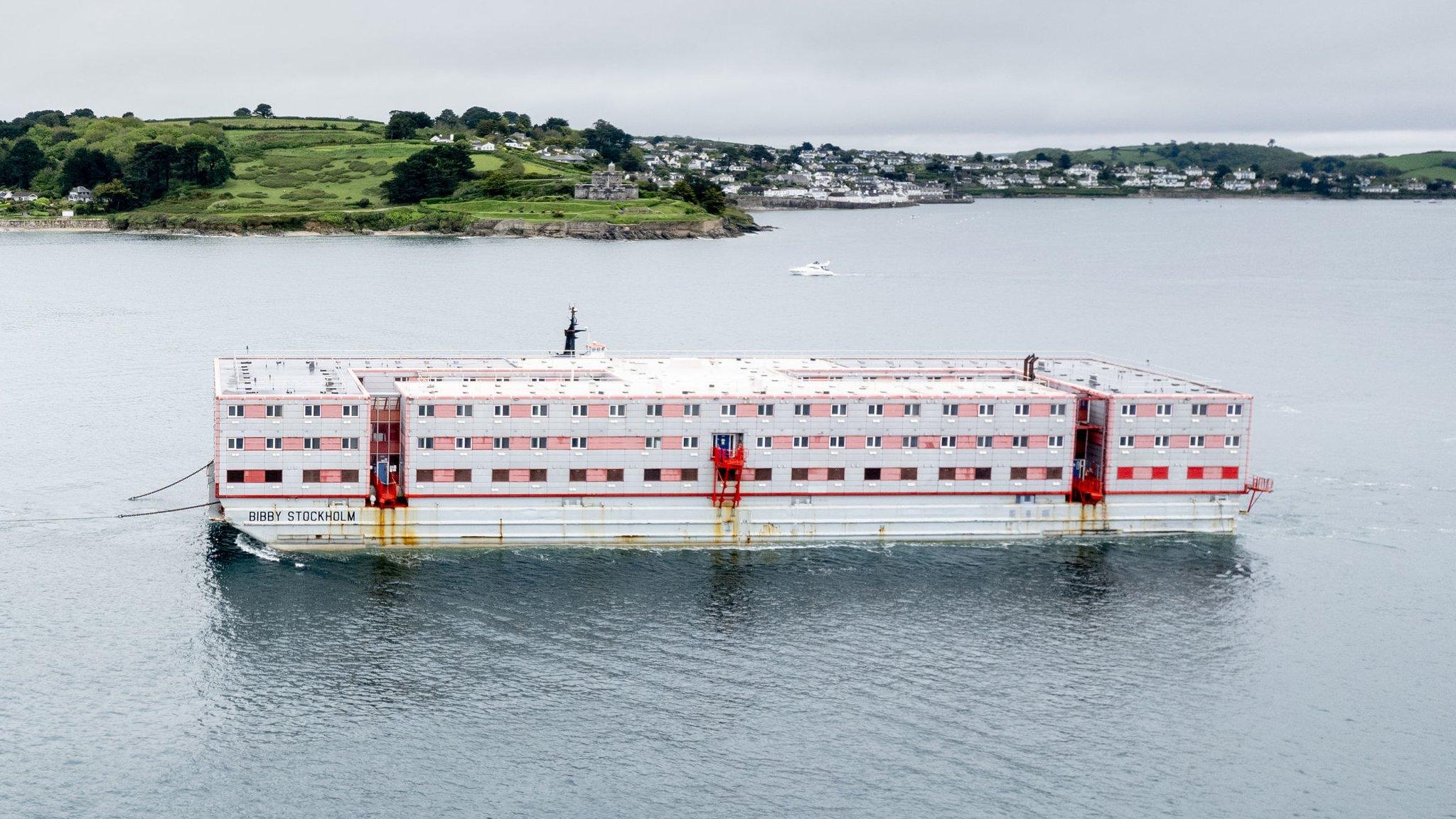
- Published18 May 2023
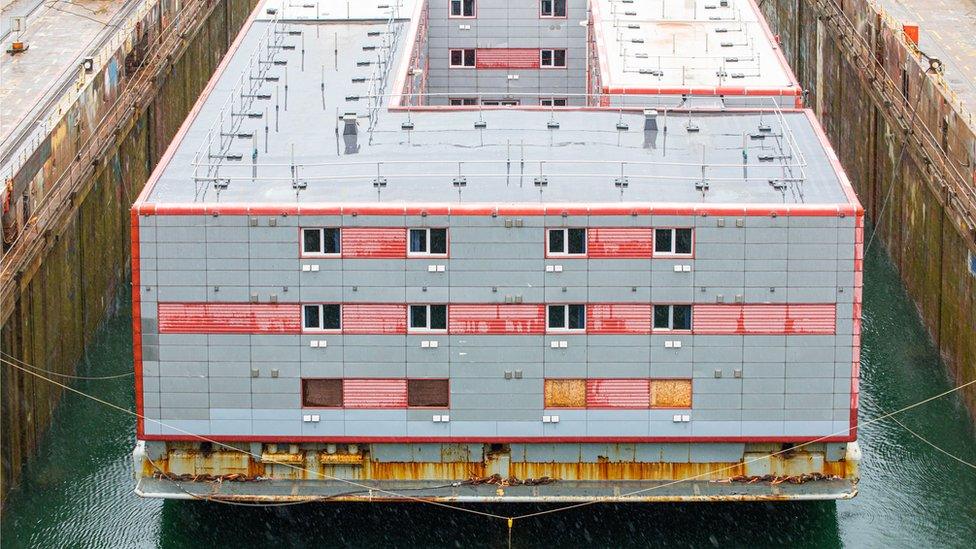
- Published13 May 2023
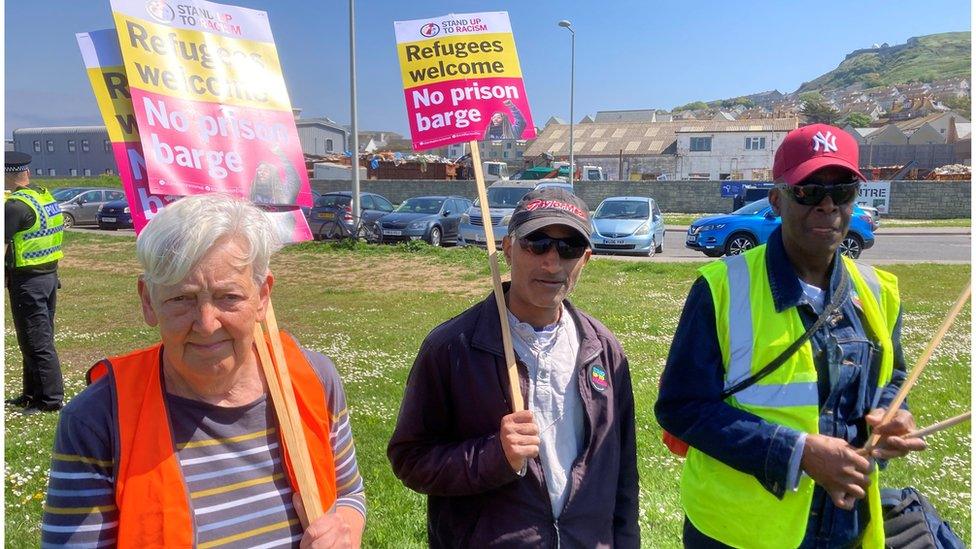
- Published27 April 2023
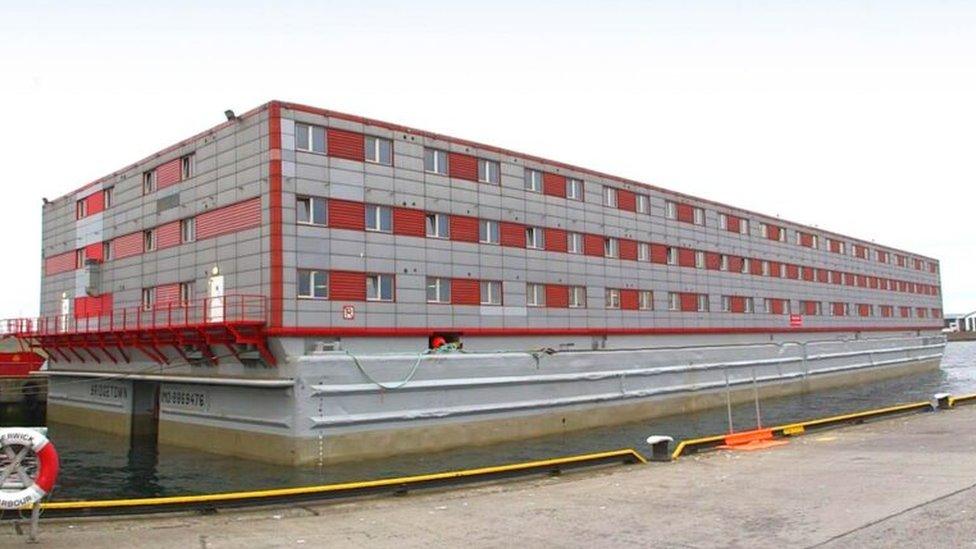
- Published7 April 2023

- Published5 April 2023
